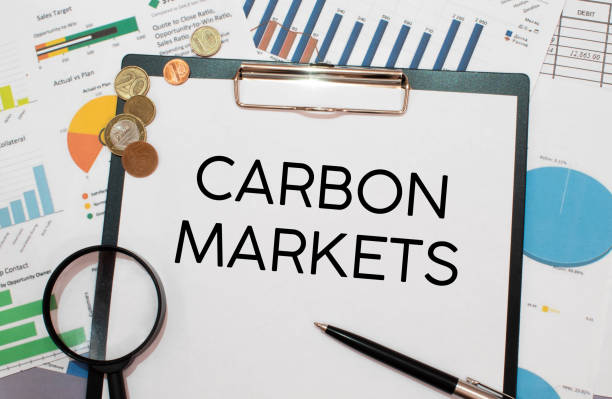
THE KENYA CARBON MARKET REGULATIONS 2024 – ANALYSIS

THE CLIMATE CHANGE (CARBON MARKETS) REGULATIONS, 2024
Kenya has, in various international fora, undertaken to hold hands with the rest of the nations of the world to reduce the emission of the Green House Gases (GHG). The oomph to actively participate in this global initiative is to reduce the ever-growing adverse effects that have been brought about by climate change.
Apart from the International Instruments pertaining the emission reduction that Kenya has committed itself, it has gone further to nationalize the global clarion call through its main national law; The Climate Change Act, of 2016 (amended in 2023). To effectuate the said Act, there has now been rolled out the Climate Change (Carbon Markets) Regulations, 2024.
Allow us to briefly break down the new regulations into segments, and lightly explain how they breathe in life into the carbon market space in Kenya.
The Regulatory Institutions
For there to be integrity in the whole cycle of carbon markets, regulation and scrutiny of the entire industry are key. Strong and high-capacity institutions represent integrity of the carbon credits produced, as well as ensuring that all the stakeholders get their benefits as prescribed. Regulation also ensures proper and ethical reporting by the carbon project proponents or owners.
Four bodies have now been created; the National Designated Authority (DNA), the Climate Change Directorate, the Multi-sectoral Technical Committee and the Ad Hoc Committee.
The DNA’s functions shall be to consider, approve and give guidance in all aspects with regards to all the carbon projects in Kenya. It shall observe and enforce compliance of the regulations by the project proponents. Further, it shall be in charge of approval of concept notes, project designs and be in charge of advisory of the projects’ eligibility. It shall monitor and advise the project proponents on the tenets of Article 6.2 and 6.4 of the Paris Agreements.
The Directorate, shall work closely with the DNA, and shall be responsible to advise the government of the carbon market activities, roping in the stakeholders. It shall be research oriented, and data centered, purposing to offer any improvements of the market’s regulations.
The Multi-Sectoral Committee is a technical department that advises the DNA on deeper technical aspects of the carbon projects and carbon activities.
The Ad-Hoc Committee will draw its functions from the DNA, in that they will be constituted to either review concept notes, project designs or even projects viability.
The Carbon Registry
The head of DNA shall be the registrar of the Carbon Registry, the functions which will include to keep, maintain and update the register, ensure confidentiality and update the information.
The Carbon Markets.
The market is now categorized into two; the compliance market and the voluntary carbon market (VCM). This categorization has been adopted in other jurisdictions. The compliance market is government regulated while the VCM operates within the market demands.
The Carbon Projects.
There is now a clear procedure of activating the carbon projects in Kenya. To begin with, the project proponent will be required to develop and submit a concept note to the DNA. The format of the concept note is provided in the regulations.
The proponent of the project will have to disclose various tenets of the project being; the type, costs, impact on GHG emission reduction or prevention, benefits to the community etc. The community on which the project is based must derive benefits which must be disclosed.
The project must also be subject to certification, validation and verification through international standards that are recognizable in Kenya.
On approval of the Concept Note, the DNA will grant a Letter of No Objection to the Proponent, who will then be required to submit Project Design for assessment and approval to the DNA. Once verified for viability, and approved, the Proponent can commence the project. There is also prescription of costs payable at every stage of the projects, and the timelines within which submissions and feedback will be given.
Conclusion
It is now systems go for investors eyeing the carbon market industry in Kenya to kickstart their business. The Regulations have brought clarity and some level of certainty in the market. Depending on how the industry behaves, the Act, and the Regulations will be subject to amendments.
By; Thiong’o Gachaga,
Legal Compliance Specialist-Carbon Markets & Environmental Governance
Githumbi Gachaga & Achoki Advocates, info@ggalaw.co.ke
Nairobi.